
How do specialty practices compensate for how difficult it is to find specialists in today's market?
You must foster an environment where people want to work.

You must foster an environment where people want to work.

"Specialty practices trying to attract new specialists aren't just competing with other practices," says Mark Opperman, CVPM, owner of VMC Inc., a veterinary consulting firm in Evergreen, Colo. "They're also competing with universities."

There is an expectation that specialty practices will be more profitable because they charge higher fees and have a larger average transaction charge, but that's not necessarily true.

Client expectations are two-fold, says Dr. Karen Felsted, CVPM, CPA, a consultant with Gatto McFerson in Santa Monica, Calif.

"Specialty practices don't want to step on the referring practice's toes by marketing themselves to clients directly," says Mark Opperman, CVPM, owner of VMC Inc., a veterinary consulting firm in Evergreen, Colo. "They would rather get referrals through the general practice. And the best way to do that is by developing relationships with them."

It's a dual client base. One set is obviously pet owners; the second set is made up of referring veterinarians.

"Many specialists feel they should get paid more just because they are a specialist, but the truth is they shouldn't," says Mark Opperman, CVPM, owner of VMC Inc., a veterinary consulting firm in Evergreen, Colo. "They should get paid more because they produce more."

Veterinary Economics was on the search for a singing veterinarian. And we found three!

The November cover-model hamster, Peaches, found a home in a Kansas City area elementary school. See Peaches' photo exploits here!

Study data shows that for every 100 job openings, only 96 veterinarians will be ready to fill the spots.
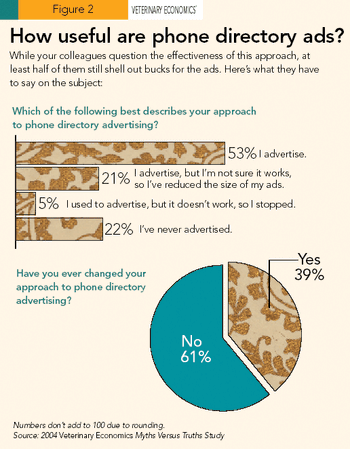
Twenty-seven percent of respondents to our survey say yellow page ads rank among their most effective marketing tools. But that's not enough to bank on.

Evolving technology continues to make veterinary diagnostics and treatment increasingly similar to human medicine. But your opinions on industry issues diverge dramatically.

Study data shows that for every 100 job openings, only 96 veterinarians will be ready to fill the spots.

Specialty practices offer services that are sometimes more than a primary care facility can handle. But more primary care practitioners are branching out.
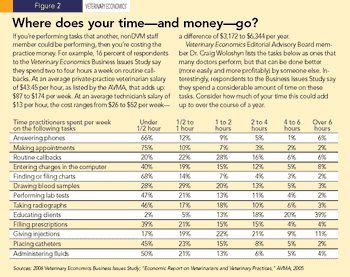
With just two hands-and so many hours in a day-delegating tasks that don't require a DVM makes sense. Yet our study shows doctors spend several hours each week performing tasks they could pass on.
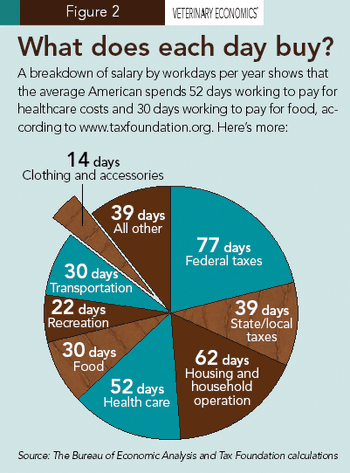
Salaries make up a big chunk of your total expenses, but when team members cover their basic living expenses, there may not be much left.

Are new grads' expectations about quality of life and child rearing changing the veterinary workweek?
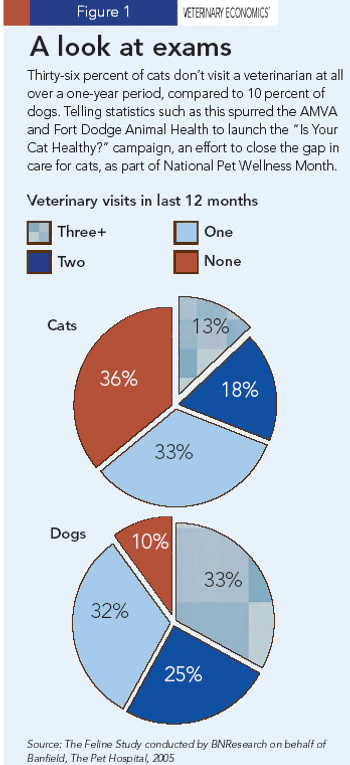
The message isn't new-pets are still missing basic care. This updated data shows how the issue affects your bottom line.

Respondents say yes. Female veterinarians face unique challenges.
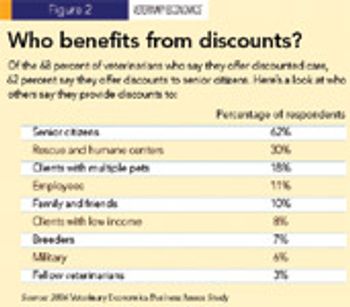
Your colleagues face the same struggle about how and when to help those in need. Here's how they balance the needs of their businesses with their compassion for pets and people.

When a staff member leaves, it's more than just an inconvenience. In fact, Well-Managed Practices estimate it costs them $22,360 on average when an employee leaves, says Cynthia Wutchiett, CPA.
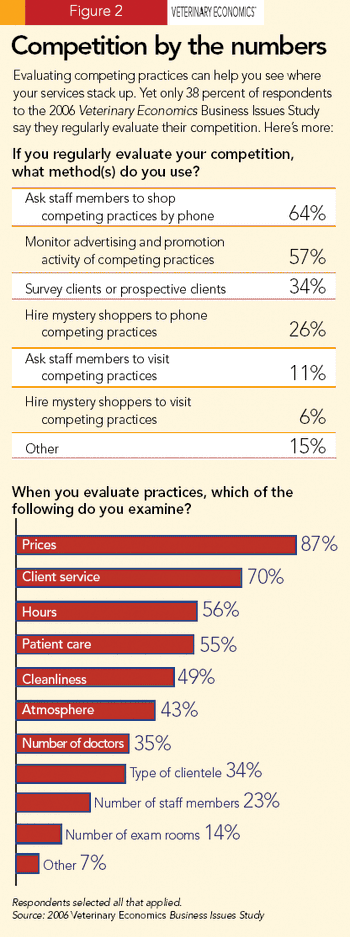
Half of veterinarians surveyed think their facilities and medical equipment are better than the other practices in their area. But how do they really know?
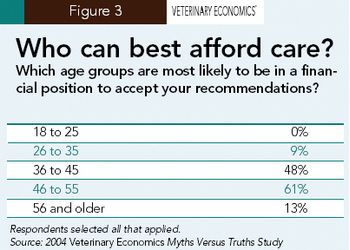
25 percent of practitioners say they start seeing resistance when a bill lands between $200 and $400. But there's no way to know which clients will opt for your "A" plan.
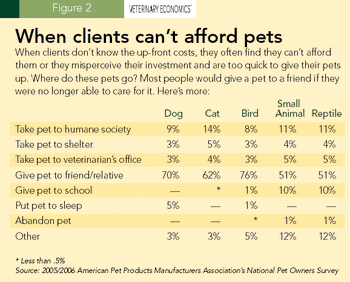
Ward off potential problems by talking about pet costs in advance.
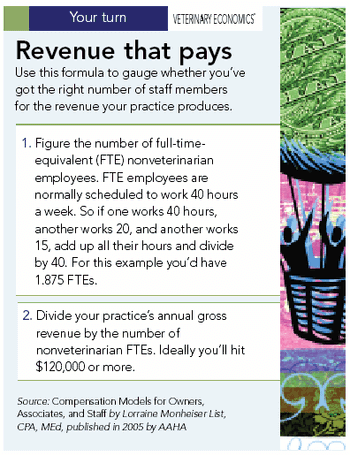
Spend too much on wages and you could face financial trouble. Spend too little ... and well ... you get what you pay for. Use these guidelines to make sure you land on the middle ground.
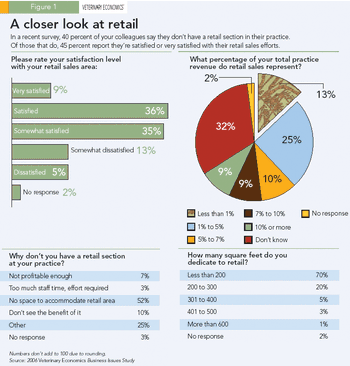
Maintaining a retail area requires time, effort, and most of all, space. Is the investment worthwhile?
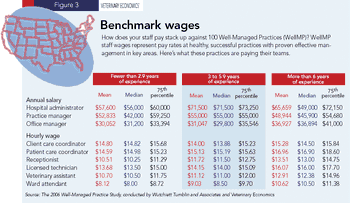
Are you paying your team too little, too much, or just about right given your location and their experience?
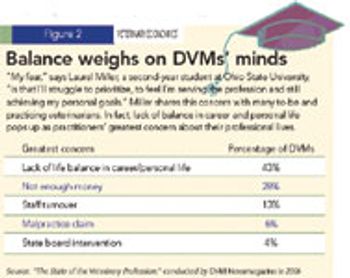
It's not that different from what established practitioners want. We probed to learn what type of practice future veterinarians want to join, what they see as their greatest strengths, weaknesses, and fears.

Today more of your clients dabble in herbal remedies and nutritional supplements. Are pets, and the veterinary practices that treat them, following the trend?
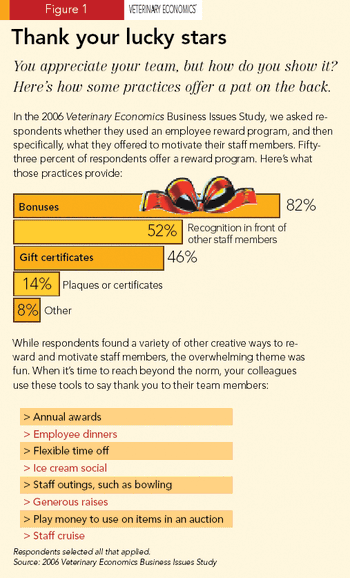
To keep happy, high-quality employees, you need to show great team members that you appreciate their contributions. Would your rewards get rave reviews?

Published: May 8th 2008 | Updated:

Published: May 8th 2008 | Updated:

Published: May 8th 2008 | Updated:

Published: May 8th 2008 | Updated:

Published: May 8th 2008 | Updated:

Published: May 8th 2008 | Updated: